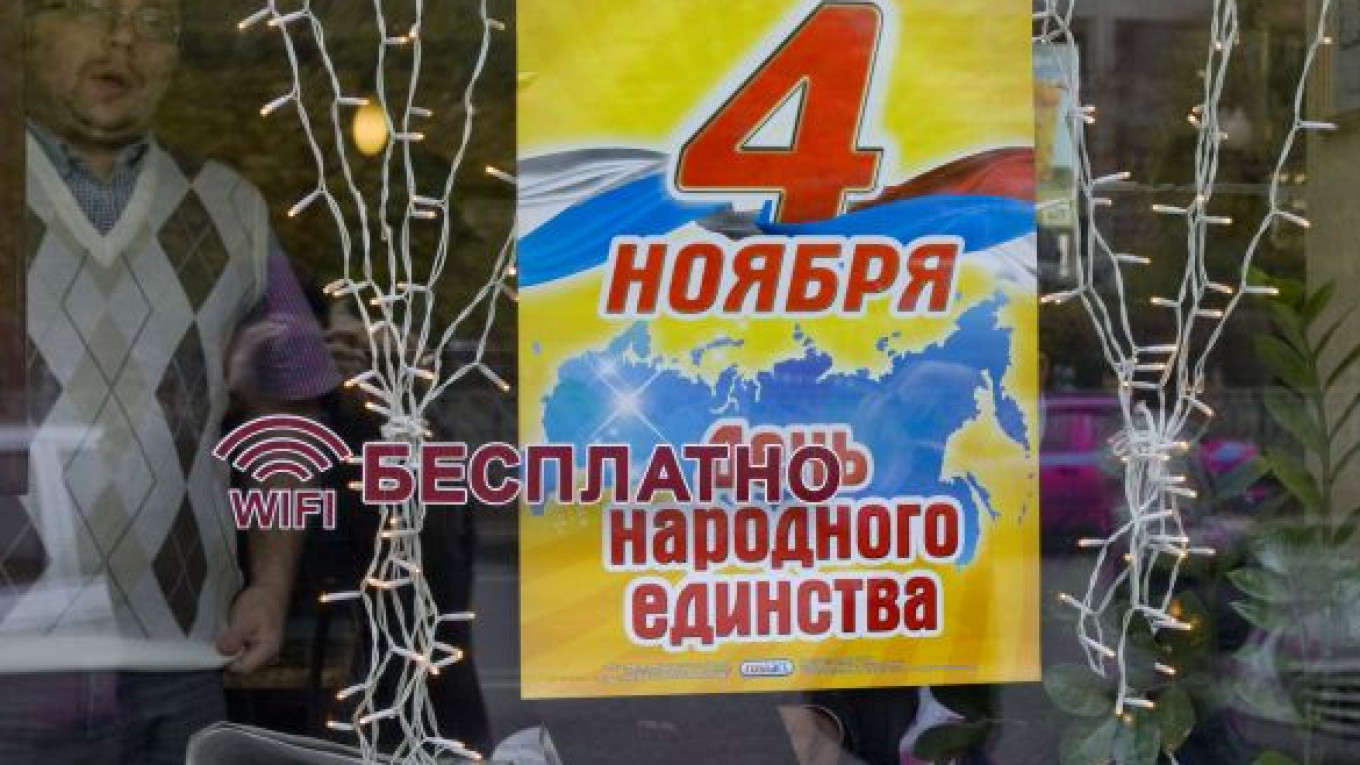Tensions are rising ahead of an annual nationalist rally next week, with a former co-organizer facing two criminal cases for inciting ethnic hatred and riotous statements.
Dmitry Dyomushkin is under investigation for calling for public unrest and threatening violence against ideological opponents in a recently published interview, the Investigative Committee told Interfax on Tuesday.
The committee did not specify the interview, but said it appeared on Oct. 17. The Novy Region news agency ran an with him that day, with Dyomushkin saying that if authorities ban the Russian March rally on Nov. 4, thousands of protesters would come to the event specifically to clash with riot police.
Dyomushkin, 32, may face up to five years in prison if charged and convicted in the two cases, which could also give authorities a legal pretext to ban the Russian March.
The activist, who headed the now-banned ultranationalist Slavic Union, noted for its Russian acronym SS and swastika-based logo, quit the rally's organizing committee after the criminal cases were opened.
The Russian March is the event of the year for nationalists, and some 5,000 attended in 2010. The rallies are usually sanctioned, but only on the condition that they take place in remote neighborhoods.
City Hall has tentatively authorized this year's event to take place in the Lyublino suburb in southeastern Moscow, co-organizer Vladimir Tor Rus-obr.ru on Monday.
This year's organizing committee features an unusual member — lawyer and blogger Alexei Navalny, who made a name for himself with his exposés of corruption in the government and state firms.
Navalny is a darling of the liberal crowd, which vehemently opposes the nationalists. But he has always supported nationalist ideas and considers himself "a national democrat."
Navalny and liberal opposition leader Vladimir Milov appeared at a Saturday rally titled "Stop Feeding the Caucasus." The event, which protested lavish federal subsidies to restive North Caucasus republics, was attended by some 300 nationalists.
Nationalism is not a fringe sentiment and will play a significant role in the State Duma elections in December, analysts said.
Twenty percent of the populace say they experience "frequent hostility" toward other ethnic groups, according to a by the Levada Center in late September.
A charismatic nationalist with a populist agenda could mobilize 50 percent of all votes nationwide, political analyst Dmitry Oreshkin Kommersant in comments published Tuesday.
President Dmitry Medvedev in August ordered all parties to stay away from "interethnic" topics while campaigning. Oreshkin said the Kremlin is worried about the situation and is allowing loyal parties such as the Liberal Democrats to play the nationalist card.
Ironically, there appears to be a lack of unity even in predominantly ethnic Russian regions that nationalists consider their home turf. Just as activists rallied against the Caucasus in the capital, small demonstrations took place in several Siberian cities under the slogan "Stop Feeding Moscow," local media reported.
A Message from The Moscow Times:
Dear readers,
We are facing unprecedented challenges. Russia's Prosecutor General's Office has designated The Moscow Times as an "undesirable" organization, criminalizing our work and putting our staff at risk of prosecution. This follows our earlier unjust labeling as a "foreign agent."
These actions are direct attempts to silence independent journalism in Russia. The authorities claim our work "discredits the decisions of the Russian leadership." We see things differently: we strive to provide accurate, unbiased reporting on Russia.
We, the journalists of The Moscow Times, refuse to be silenced. But to continue our work, we need your help.
Your support, no matter how small, makes a world of difference. If you can, please support us monthly starting from just $2. It's quick to set up, and every contribution makes a significant impact.
By supporting The Moscow Times, you're defending open, independent journalism in the face of repression. Thank you for standing with us.
Remind me later.


